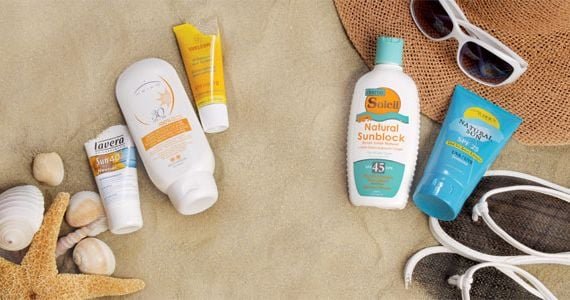The sun can pose significant risks to your skin. To enjoy your summer safely, consider using these natural and non-toxic sunscreens.
The sun is often a leading factor in skin damage, contributing to premature aging and increasing the risk of skin cancer, which is the most prevalent form of cancer in Canada. When it comes to sun exposure, the key message is clear: prioritize protection to avoid serious consequences.
While sunscreen is effective in shielding our skin from light, heat, infections, and injuries, its most crucial role is in cancer prevention. A report by Dr. John E. Adams, published in the Journal of the Canadian Medical Association, emphasizes that “a person’s risk of sun-induced skin damage, and likely skin cancer, rises with their total cumulative sun exposure and frequency of sunburns.”
According to the Canadian Safety Council, 80 percent of skin cancers develop on areas above the neck, highlighting the importance of safeguarding the head, neck, lips, and ears.
Dr. Lise Alschuler, a naturopathic physician and co-author of the Definitive Guide to Cancer (Celestial Arts, 2007), offers practical advice: “To shield your skin from skin cancer, wear suitable clothing, a wide-brimmed hat, seek shade, and opt for non-toxic sunscreen.”
Choosing Natural & Non-toxic Options
Many conventional sunscreens contain harmful ingredients that can be detrimental to your health. Since the skin can absorb up to 60 percent of what it touches, it’s wise to minimize the entry of toxins by selecting natural sunscreens.
Problematic ingredients often found in mainstream sunscreens include artificial colors, phthalates from synthetic fragrances, and parabens. These and other toxic substances have been linked to various health issues, including cancer.
As noted by Myra Eby, co-author of Return to Beautiful Skin (Basic Health Books, 2008), ideal natural ingredients to seek in a non-toxic sunscreen are natural vitamin E (D-alpha tocopherol), aloe vera extract, and allantoin derived from comfrey. Additionally, zinc oxide serves as a safe and effective sunblock.
While avoiding the sun entirely isn’t necessary, if you plan to spend time outdoors, make a conscious choice to shield your skin with a natural, nontoxic sunscreen.
The Importance of Vitamin D
Don’t shy away from sunlight completely. Exposure to sunlight allows the skin to produce vitamin D, a crucial nutrient for overall health. Dr. Alschuler explains, “Vitamin D is essential, but we don’t require excessive sun exposure to meet our needs.” She also notes that consuming foods rich in vitamin D, such as cold-water fish and dark leafy greens, can support your vitamin D levels.






